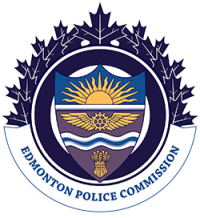The Edmonton Police Commission (Commission) places a high value on a skilled workforce and recognizes the necessity for providing performance reviews and maintaining effective and appropriate learning and development programs for employees in order to meet the current and future needs of the organization.
Guidelines:
- The Commission expects all employees to perform their duties in an efficient and effective manner.
- In order to ensure a high level of performance, regular performance reviews will be carried out.
- The objectives of these reviews are:
- to achieve Commission goals;
- to provide employees with a clear and concise understanding of their duties and responsibilities within their assigned jobs;
- to establish measuring tools by which the employee’s performance in completing their duties and responsibilities can be evaluated;
- to identify employee training and staff development needs; and
- to encourage employees to identify and overcome barriers which limit performance.
- The Commission will conduct, at a minimum, an annual review of the Executive Director, the the Public Complaints Director, the Director of Audit and Risk, and the Chief of Police.
- The Executive Director will conduct, at a minimum, an annual review of all other Commission employees not listed in Guideline 4.
- Where the Commission and/or the Executive Director initiates a request for employee development, the Commission will be responsible for all associated costs including, but not limited to, tuition or registration fees, books and other resources and, if applicable, travel and living expenses. This includes cases in which legislative or regulatory requirements change which require recertification or knowledge upgrading. Full salary is paid for the necessary time off to attend approved courses and professional development opportunities and vacation and benefit entitlements are not affected by course attendance.
- If an employee wishes to initiate training, then the employee must develop a business case establishing a work-related need for the skill development. Financial assistance will be at the discretion and approval of the Executive Director. In the event the Executive Director or Public Complaints Director is the applicant assistance will be at the discretion and approval of the Commission.
- Should an employee fail a course for such reasons as poor performance, poor attendance, or poor conduct, the employee will be required to reimburse the Commission for all expenses incurred on the employee’s behalf.
Procedures:
- The Executive Director is responsible for:
- ensuring that a job description exists for each employee;
- appraising current performance levels and discussing performance expectations with the employee on an ongoing basis;
- identifying areas of each job in which training is needed;
- determine what future objectives/expectations they wish to set;
- provide opportunities to employees to enhance their skills by, but not limited to, membership in professional organizations, attending conferences/seminars, completing post-secondary courses or programs that result in a diploma, degree, certificate, or designation.
